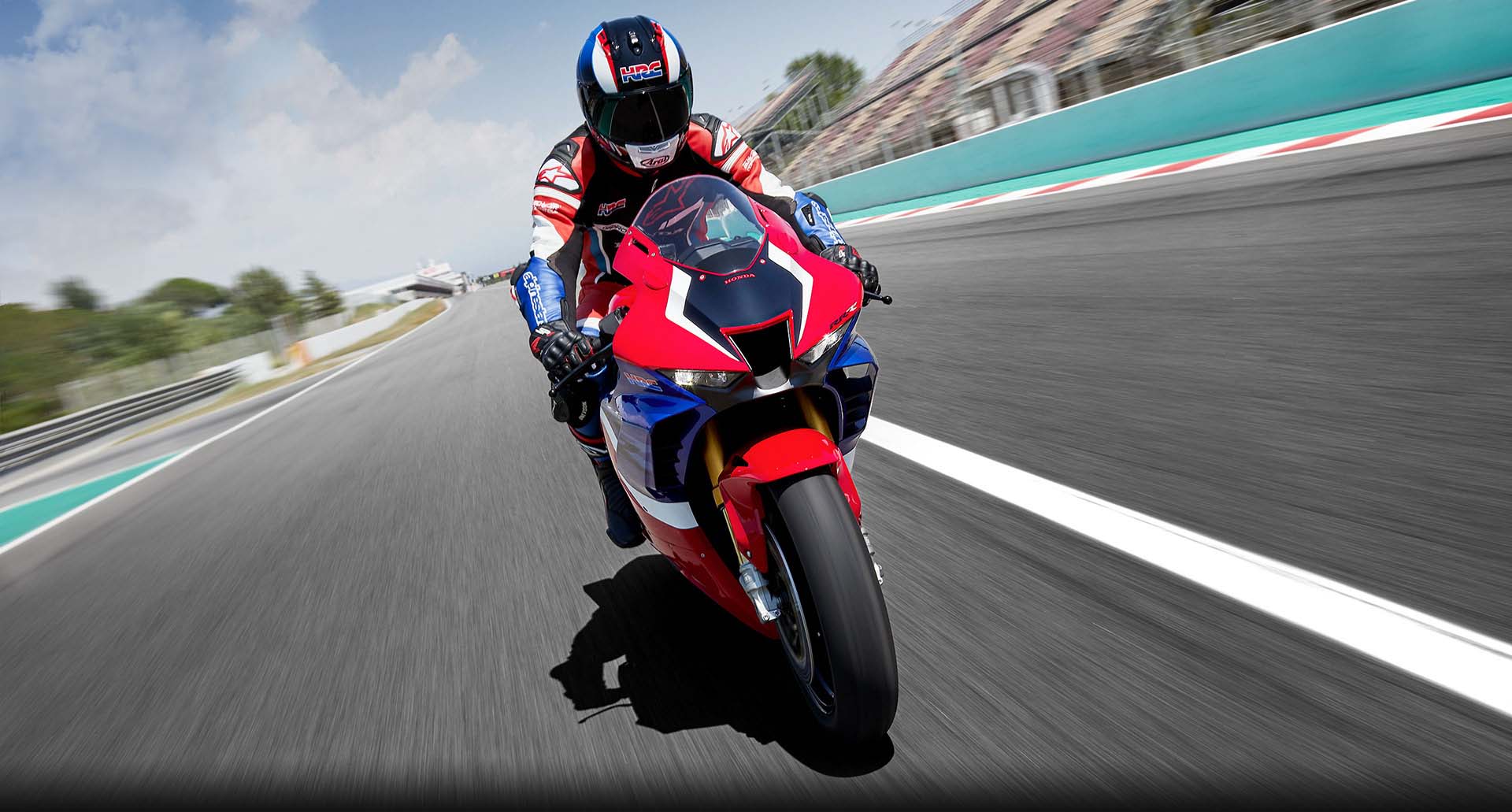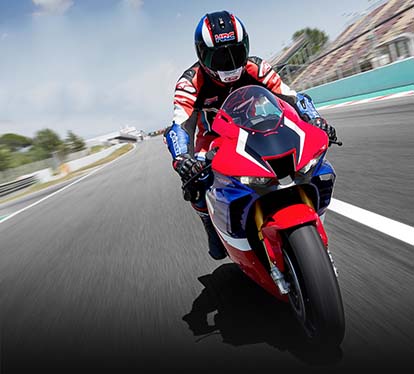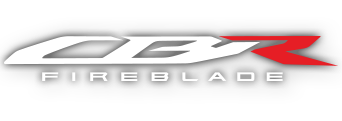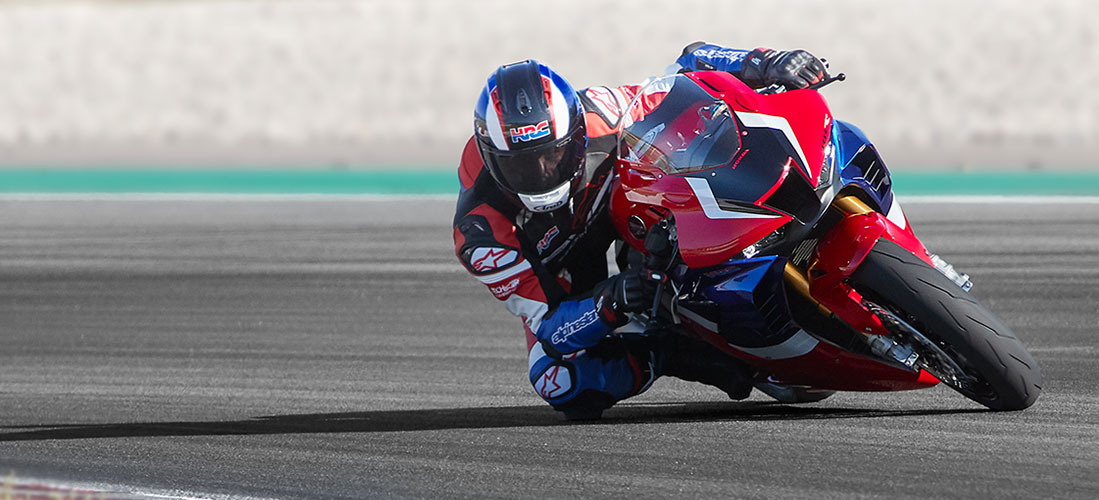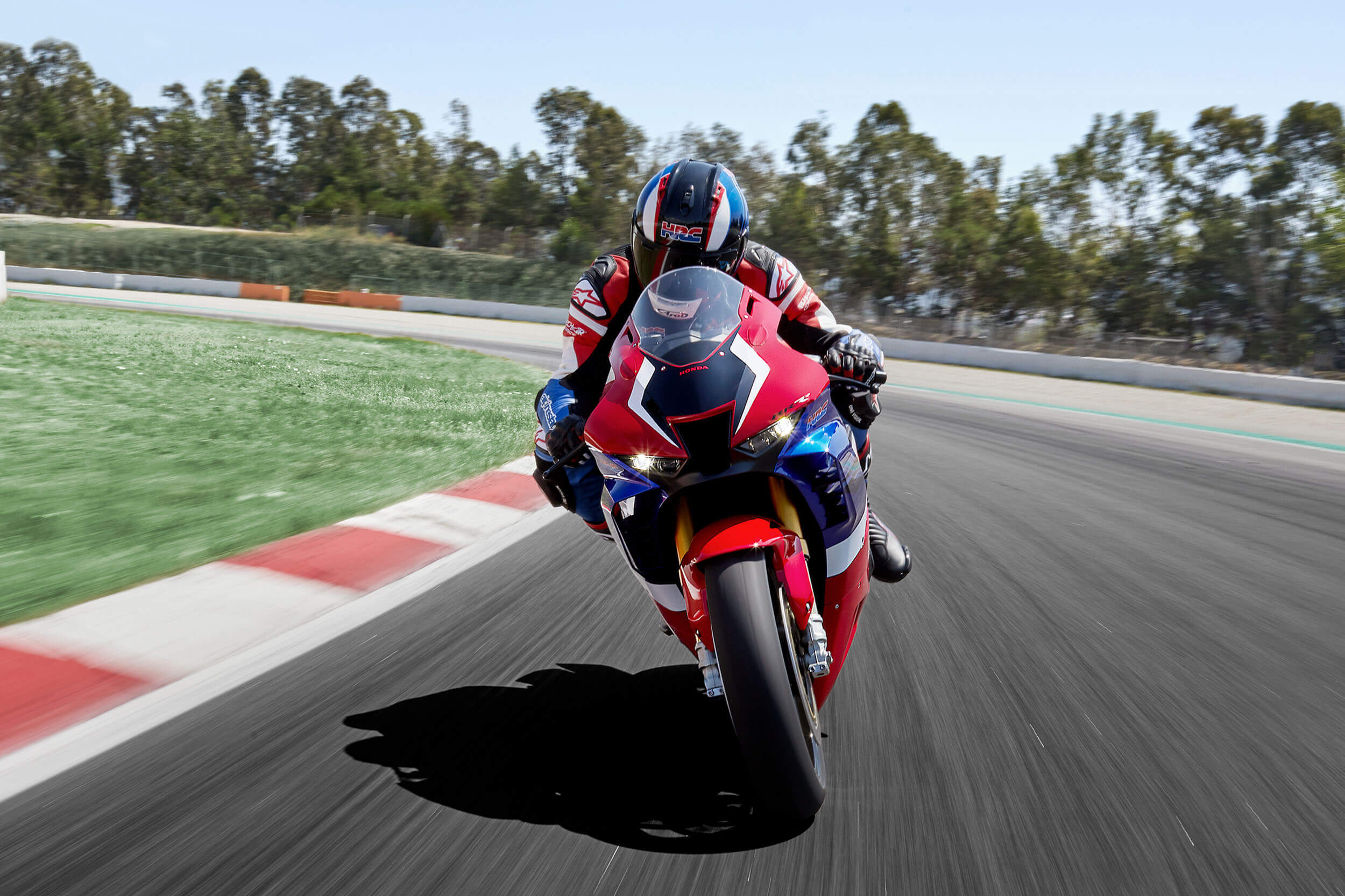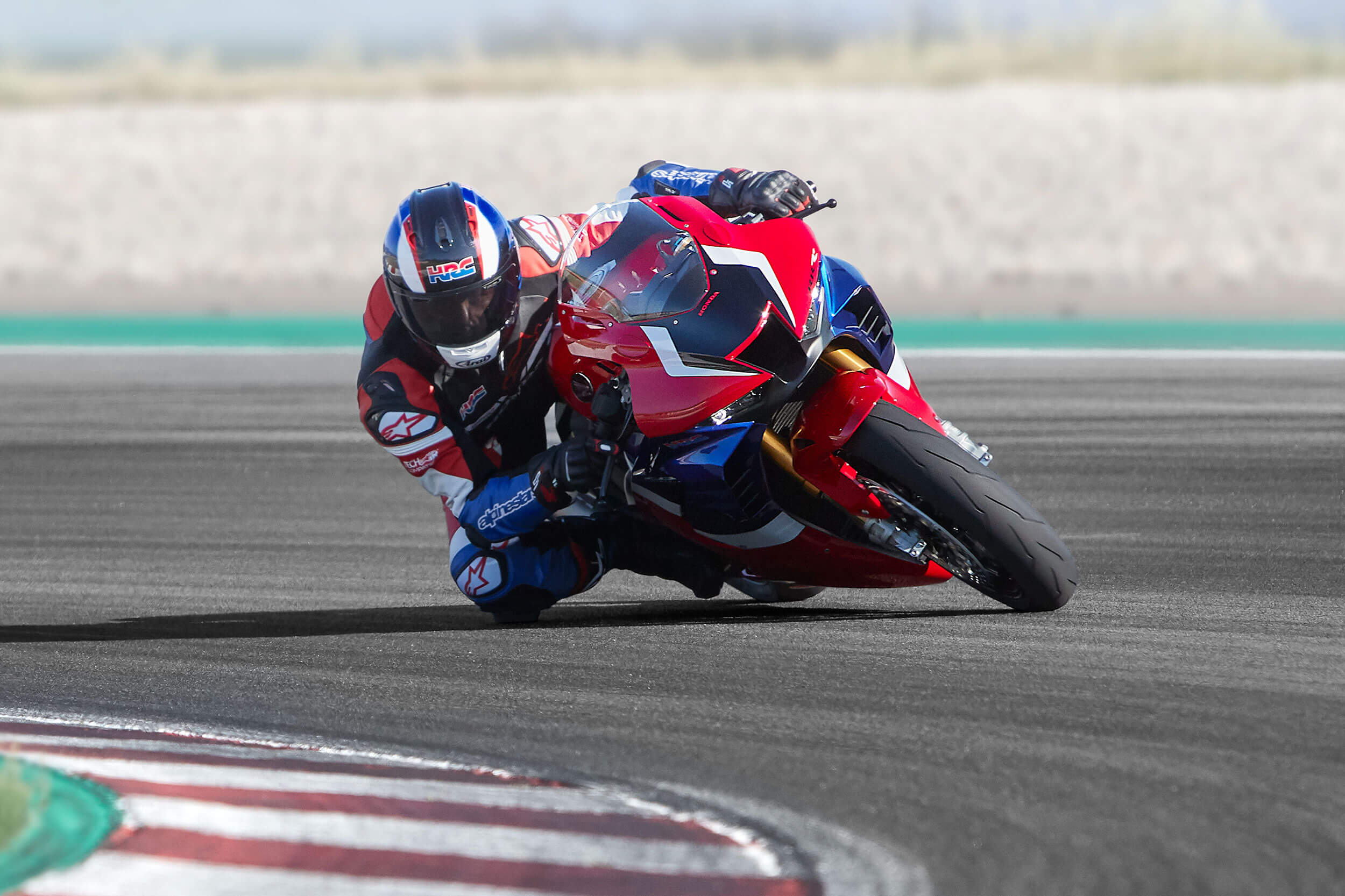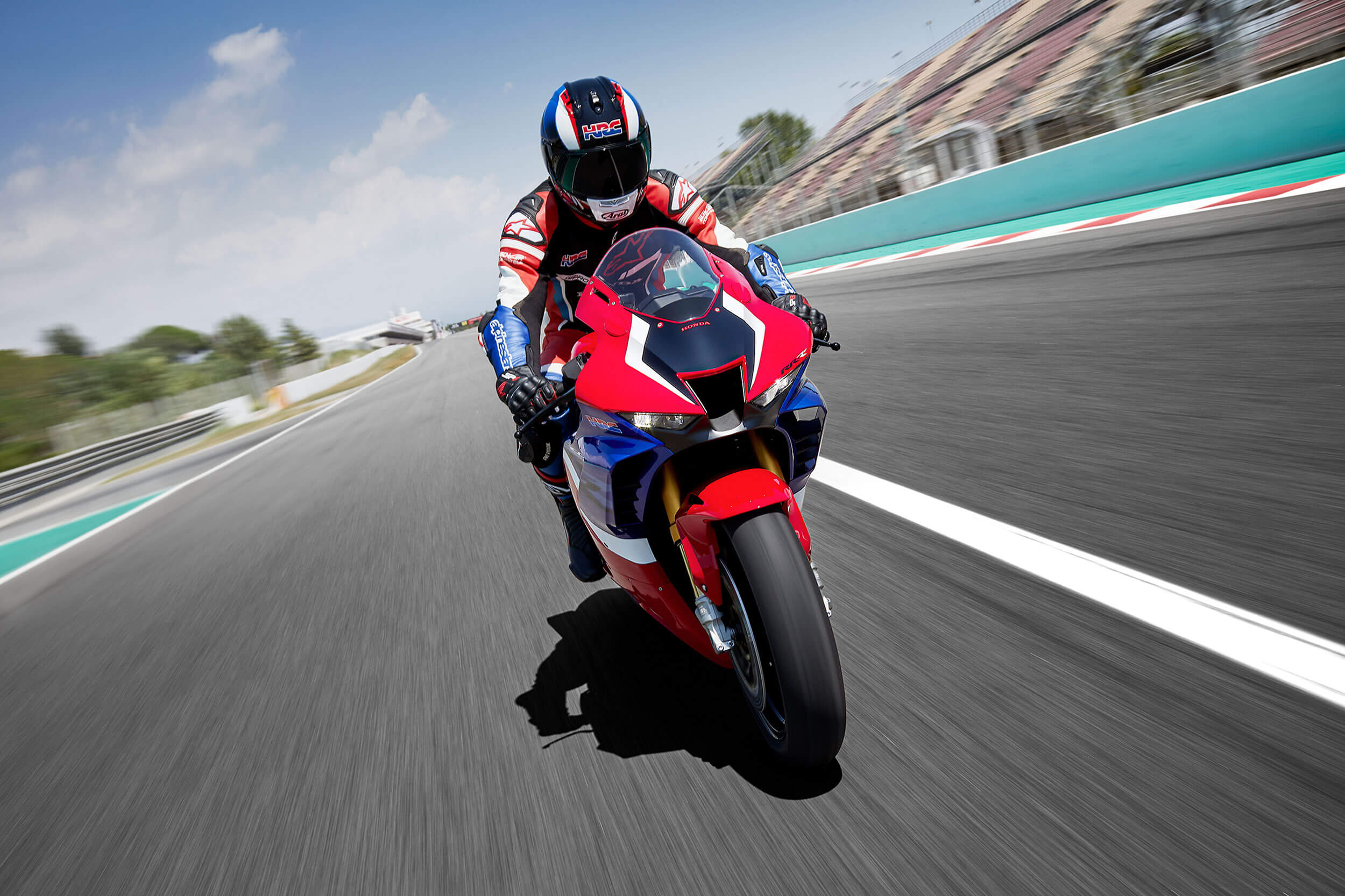A Guide to
CBR FIREBLADE
Introduced in 1992, Honda’s iconic Fireblade took the world by storm, evolving into an incredible 1000cc machine while creating a legacy both on the track and off it. The motorcycle was also a blueprint for many competitive racing machines, and has even left a mark on The Isle of Man TT.
The legend of Fireblade has evolved to grow bigger with time, and in 2020 we are here with two new variants created along with Honda Racing Corporation. The CBR1000RR-R Fireblade and CBR1000RR-R Fireblade SP are worthy of furthering the legacy of the original Fireblade.
The design of both the variants in terms of the engine, handling and aerodynamics is focused on sheer track performance. The fact that the engine and chassis technology of the RC213V-S ‘street-legal MotoGP machine’ and the aerodynamics of RC213V MotoGP bike has been used in creating these machines leaves no doubt of what they could achieve on the tarmac.

Features
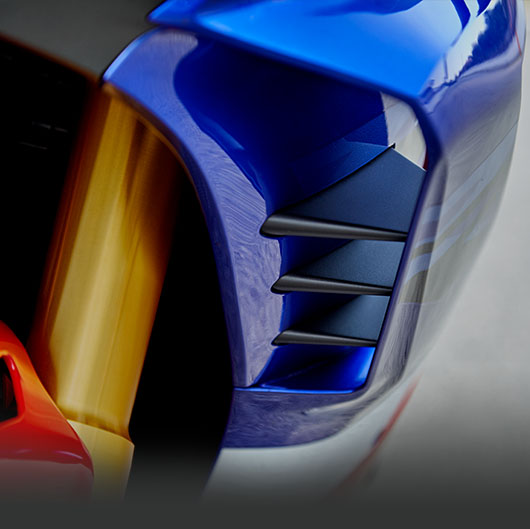
Aerodynamic Winglets
The CBR1000RR-R Fireblade is equipped with winglets which effectively generate downforce at track speeds. Three wings are installed in each of the right and left ducts in order to address downforces.
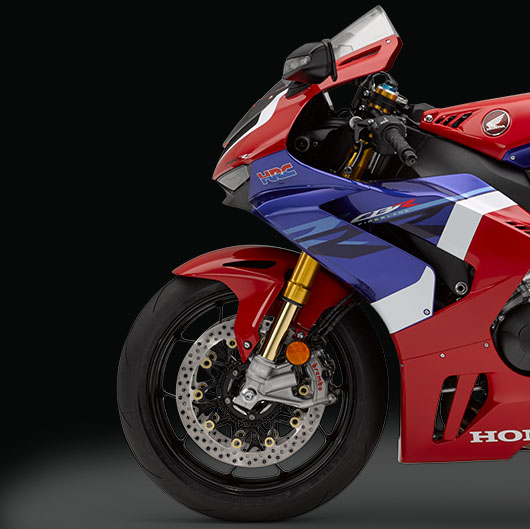
Brembo Brakes (Exclusive To SP)
The CBR1000RR-R Fireblade SP’s front brake discs are 330mm in diameter to improve braking force. The bike features Brembo Stylema front calipers while the rear caliper is the same as the Brembo used for RC213V-S. Even the brake master cylinders and front-brake levers are supplied by Brembo, offering comprehensive braking performance.
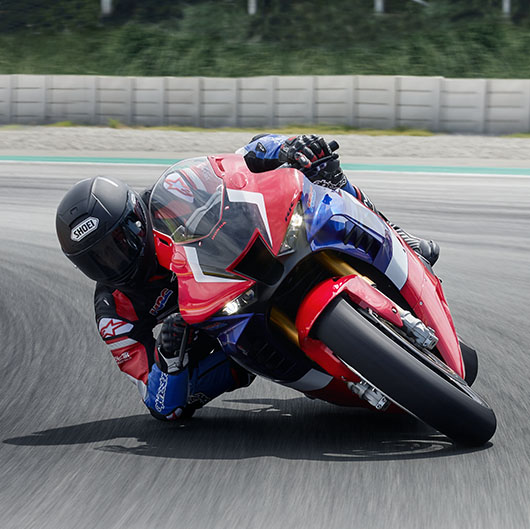
Designed For Total Control
The CBR1000RR-R Fireblade’s wheelbase is just 57.3 inches for super-responsive handling, while the swingarm measures 24.5 inches in length. The crankshaft centerline is 33mm farther from the front axle and 16mm higher for better front/rear balance with a rider onboard. Rake angle is 24 degrees, with 101.2mm of trail. The swingarm has been extended by 30.5mm for improved traction on the track. Also, horizontal swingarm rigidity was reduced by 15%, while the vertical rigidity remains the same.
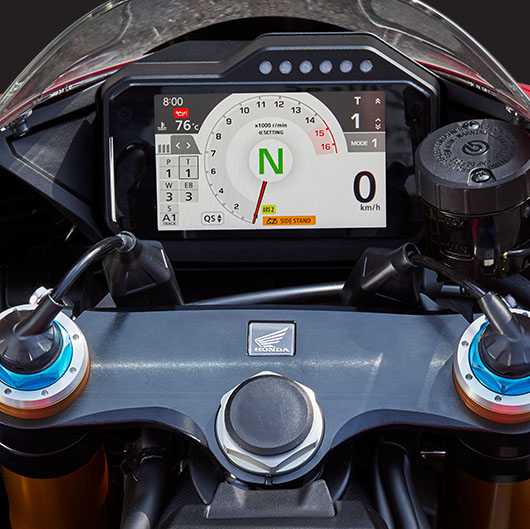
Full-Colour TFT Meter
The CBR1000RR-R Fireblade is equipped with a larger instrument screen with a higher resolution than previous CBR models. You can choose from a menu of screen setting options that display the information you want in a format you prefer, with items like engine temperature, riding modes, speedometer and tachometer, shifter setting, ABS level, gear position, remaining fuel, and much more.
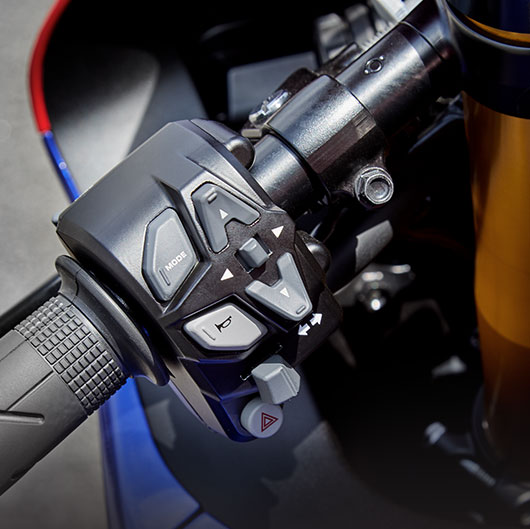
Honda Selectable Torque Control (HSTC)
With Honda Selectable Torque Control (HSTC), we’ve got your back while you remain in control. Here’s how it works: the system automatically adjusts engine power to optimize torque at the rear wheel, reducing rear-wheel slip. You get your choice of five power curves, ten torque control levels, three engine braking levels, and now three selectable levels of wheelie control so it’s easier than ever to dial your motorcycle in at the track.
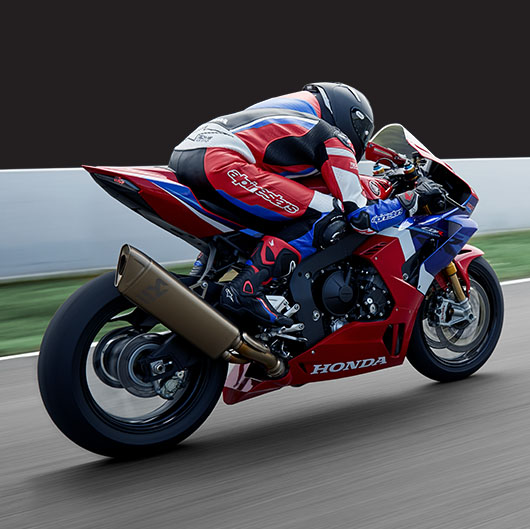
Lighter Than Ever
The CBR1000RR-R Fireblade uses a light-weight aluminium frame with 2mm thick wall sections. Vertical and torsional rigidity have increased by 18% and 9% respectively, and horizontal rigidity decreased by 11% for better feel and performance.
The titanium connecting rods and the rod bolts thread directly into the rod body so there’s no separate fastening nut. The design reduces weight by approximately 50% compared to a steel rod, and is the same design as the RC213V-S rod.
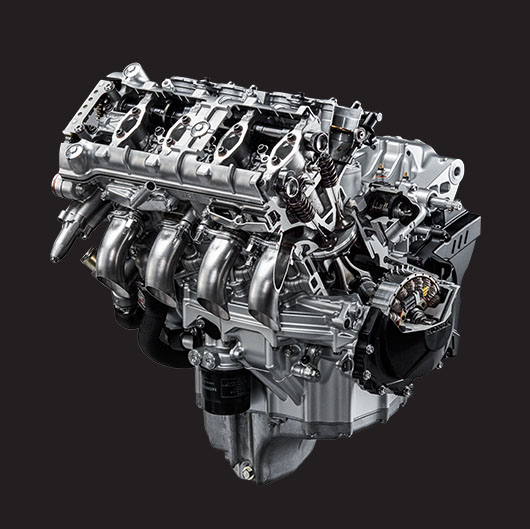
Power On Demand
The new CBR1000RR-R uses an all-new Bore and Stroke (81mm x 48.5mm), same as the MotoGP’s RC213V motorcycle. Armed with finger-follower rocker arms, this design reduces the inertia weight of the valve system. DLC (diamond-like carbon) coating reduces friction resistance on surfaces sliding against the cam and tappet shim. The pistons are forged out of A2618 aluminium, the same material used in the RC213V. Each piston is now lighter by approximately 5% compared to the previous model, even though the bore is bigger. Improvements in the crankshaft and intake valve angle increase the ventilation efficiency. All of these upgrades together contribute to the CBR1000RR-R’s higher redline.
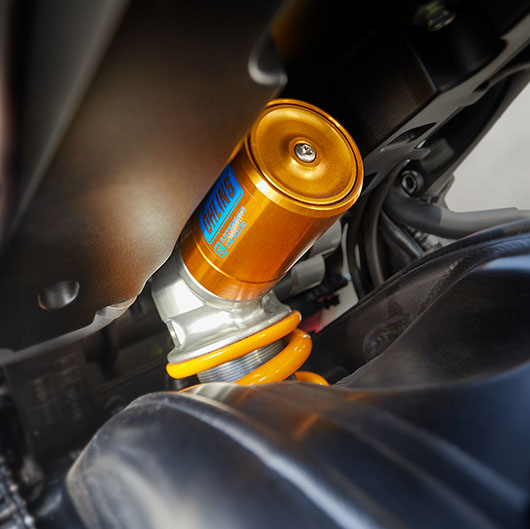
Öhlins Secondgeneration Smart EC Suspension (Exclusive To SP)
The CBR1000RR-R Fireblade SP uses an electronically controlled NPX fork manufactured by Öhlins. By adding a pressurized damping system to the NIX fork used by the previous CBR1000RR SP, cavitation inside the damper is minimized to stabilize damping force more and improve bump absorption.
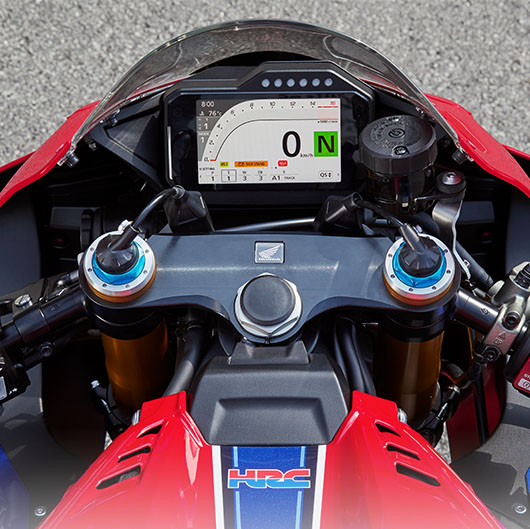
Smart Key
Eliminating the traditional keyed ignition not only adds convenience, but also lets us streamline the intake ducting for better airflow. Plus, it gives the top tripleclamp the look that you would see on true racing motorcycles.
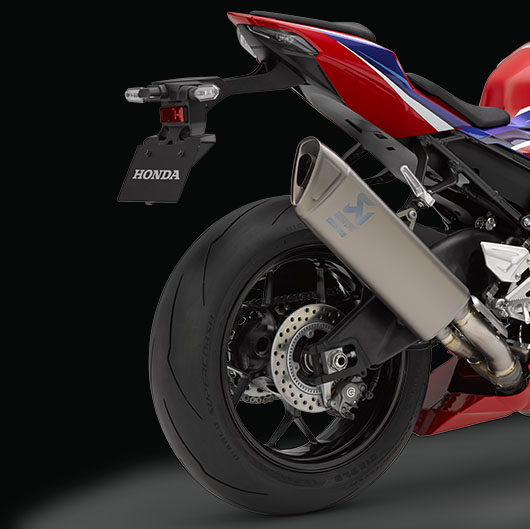
Electrifying Titanium Muffler
This Speed Roadster is equipped with a Titanium Muffler, just like the MotoGP bikes. It’s lightweight and comes with an internal exhaust valve made for supreme performance and the roar-like growl.
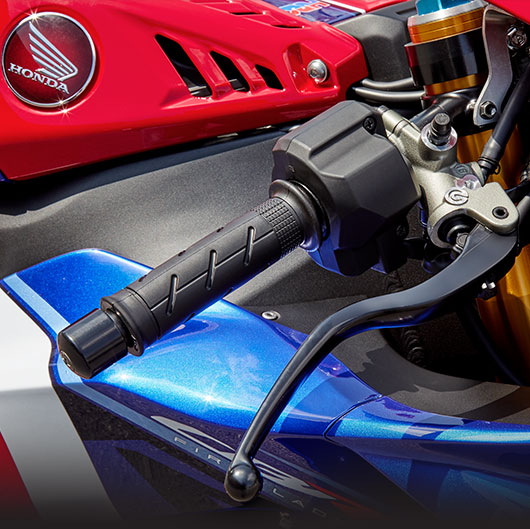
Throttle-By-Wire System (TBW)
The CBR1000RR-R Fireblade’s throttle-by-wire system smoothens and improves throttle response, especially at the critical initial throttle opening. Plus, adopting TBW makes it possible to integrate the CBR1000RR-R Fireblade’s riding mode system.


Specifications
ENGINE
| Variant | CBR1000RR-R STD | CBR1000RR-R SP |
| Type | Liquid-cooled 4-stroke 16-valve DOHC Inline-4 | |
| Engine Displacement (cm³) | 1000cc | |
| No. of Valves per Cylinder | 4 | |
| Bore Stroke (mm) | 81mm x 48.5mm | |
| Compression Ratio | 13:1 | |
| Max. Power Output | 160Kw @ 14,500rpm | |
| Max. Torque | 113Nm @ 12,500rpm | |
| Oil Capacity | 4.0L | |
FUEL SYSTEM
| Variant | CBR1000RR-R STD | CBR1000RR-R SP |
| Carburation | PGM-DSFI | |
| Fuel Tank Capacity | 16.1L | |
ELECTRICAL SYSTEM
| Variant | CBR1000RR-R STD | CBR1000RR-R SP |
| Starter | Electric | |
| Battery Capacity | 12-6 YTZ7S | 12-2 Lithium-Ion |
DRIVETRAIN
| Variant | CBR1000RR-R STD | CBR1000RR-R SP |
| Clutch Type | Wet, multiplate clutch with diaphragm spring with assist slipper | |
| Transmission Type | 6-speed | |
| Final Drive | Chain | |
FRAME
| Variant | CBR1000RR-R STD | CBR1000RR-R SP |
| Type | Aluminium composite twin spar | |
CHASSIS
| Variant | CBR1000RR-R STD | CBR1000RR-R SP |
| Dimensions (L x W x H) | 2100 x 745 x 1140mm | |
| Wheelbase | 1455mm | |
| Caster Angle | 24º | |
| Trail | 102mm | |
| Seat Height | 830mm | |
| Ground Clearance | 115mm | |
| Kerb Weight | 201Kg | |
SUSPENSION
| Variant | CBR1000RR-R STD | CBR1000RR-R SP |
| Type Front | Showa Telescopic Inverted Fork with an inner tube diameter of 43mm, and a Big Piston Front Fork with preload, compression and rebound adjustment, 120mm stroke. | Telescopic Inverted Fork with inner diameter of 43mm and Öhlins NPX Smart-EC with preload, compression and rebound adjustment, 125mm stroke. |
| Type Rear | Unit Pro-Link with gas-charged HMAS damper featuring 10-step preload, stepless compression and rebound damping adjustment, 137mm stroke. Showa Balance-Free Rear Cushion with preload, compression and rebound adjustment. | Pro-Link with gas-charged Öhlins TTX36 Smart-EC damper featuring preload, compression and rebound damping, 143mm stroke. |
WHEELS
| Variant | CBR1000RR-R STD | CBR1000RR-R SP |
| Rim Size Front | 17 inch x 3.5 | |
| Rim Size Rea | 17 inch x 6.0 | |
| Tyres Front |
120/70-ZR17 Pirelli Diablo Supercorsa SP Bridgestone RS11 |
|
| Tyres Rear |
200/55-ZR17 Pirelli Diablo Supercorsa SP Bridgestone RS11 |
|
BRAKES
| Variant | CBR1000RR-R STD | CBR1000RR-R SP |
| ABS System Type | 2 Channel | |
| Front |
330mm disc with radial-mount 4-piston Nissin caliper |
330mm disc with 4-piston Brembo caliper |
| Rear | 220mm disc with 2-piston Brembo caliper | |
INSTRUMENTS & ELECTRICS
| Variant | CBR1000RR-R STD | CBR1000RR-R SP |
| Instruments | TFT-LCD | |
| Security System | HISS | |
| Headlight | LED | |
| Taillight | LED | |
.png)
.png)
.png)
